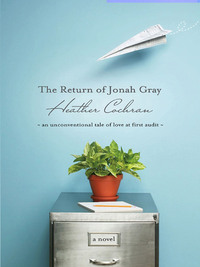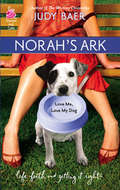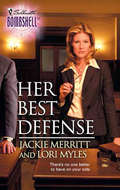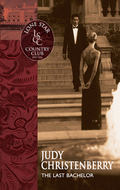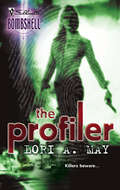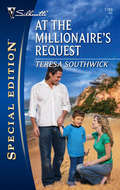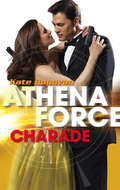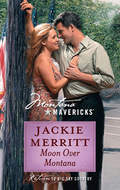Kitap dosya olarak indirilemez ancak uygulamamız üzerinden veya online olarak web sitemizden okunabilir.
Kitabı oku: «The Return Of Jonah Gray», sayfa 4
What had caused that? Had it coincided with the move to Stockton? Had he been ill? I noticed that he’d carried some significant out-of-pocket medical expenses. And why on earth had he paid for a membership in the AARP? The man was thirty-three years old.
Whatever it was, it had happened in July. That much I knew. It was July when he’d stopped working at the Journal, moved from Tiburon and given away so many of his belongings. It was in July that he’d filled out a loss report, detailing the destruction of a California black oak at 530 Horsehair Road. But were those things related? What had happened?
Knowing how much he cared for flora, I looked closely at the details of the tree loss. The black oak, estimated to have been sixty-five years old, had been plowed into by a truck and mortally wounded. You can’t replace a tree like that—even with my minuscule knowledge of greenery, that seemed obvious. But had he valued a tree more highly than his life in Tiburon? Did he move to Stockton as penance?
I turned back to his deductions and that’s when I saw it—the donation of a boat to charity. Not just any boat. He had given away a twenty-two-foot Catalina. Of all the boats on all the bays and oceans and lakes and estuaries, Jonah Gray had been sailing around in the one I’d wanted. He’d donated it to something called the American Aphasia Association. I didn’t know much about aphasia, only that it was a disorder that affected someone’s ability to use or understand words. If that was so important to him, he could have given the Catalina to me, I thought. I had no words for the coincidence.
My phone rang.
“Sasha Gardner.”
“He’s a good man,” a woman said.
“Jonah Gray?” I asked.
She didn’t seem surprised that I knew his name. “If you met him, you’d see that this is a wild-goose chase,” she said.
“Listen, it’s not personal. I’m just doing my job. It’s a compliance audit.”
“You think you’re so special?”
“I didn’t say that.”
“That young man, he gives. He gives to anyone who asks, and what does he want in return? Nothing. And after all he’s been through.”
“What has he been through? Why did he give up the boat and move to Stockton? Did it have to do with the oak tree?” I cringed a little, hearing what sounded like desperation in my voice. But it suddenly felt very important that I figure it out. I felt like I had to know the answers. This wasn’t my usual, measured approach. More often I made assumptions based on details in returns, then tested them against the evidence I collected. But I could not yet piece together the story of his past year. I found myself at a loss. And yet I wanted to know.
My caller was not inclined to help me. “Like you care,” she grunted.
“I do,” I said. “We’re both from Virginia. And we both sail. Well, I mean, I used to. And, I guess, he used to. Too.”
“Then try showing him a little heart. He wouldn’t do this to you.”
“How could he? He’s not an auditor,” I said. “And he did publicly post the notification.”
“You started it by sending that letter.”
“But that was computer generated.”
“A real personal touch. That’s the kind of thing he wouldn’t do. He’s a good person, which is more than I can say about you. You’re not even good enough to be rummaging through his financial records.” She hung up.
Not good enough? I thought. How the hell could she know that? Who the hell was she to judge? Not good enough? At least I didn’t prank call strangers. At least I didn’t harass honest government workers. I was plenty good enough, I told myself. And besides, shouldn’t that be Jonah Gray’s choice?
As soon as the question popped into my mind, I sat up with a start. What was I doing? How had I become so riled from an anonymous phone call? That woman didn’t know me. None of them knew me. And it wasn’t for any of them to judge whether or not I was good enough to audit Mr. Jonah Gray. Ultimately, it wasn’t even his choice. It was the IRS that had chosen. And apparently the Service, or its randomization algorithm, had chosen me.
I realized that I had stopped reviewing Jonah Gray’s return in my standard way. Instead of following my long-held protocols, I was wandering around this guy’s life like a lost soul, skimming forward and backward without any plan at all. Gone was my customary patience—I was acting as if I wanted to know everything all at once, which is exactly how I felt.
But that’s not how an auditor was supposed to approach a return. It was not the way I’d been trained to work. I was supposed to review all returns in the same manner, to give them equal, undifferentiated consideration.
I steeled myself and closed his file. Yes, this guy was unexpected, and I didn’t know what I would find next, and I wanted to know. But I wasn’t going to abandon my professionalism for the sake of some stranger. I would unravel Jonah Gray’s story in due time. But I would start over from the beginning, the standard way. That is, once I got the first page back from Ricardo.
When Ricardo finally reappeared, he was dripping from head to toe. The man couldn’t have weighed more than one hundred and twenty pounds soaking wet, which he was when he walked back into my cubicle.
“You left with my return. I need it,” I said.
“Look at me!” Ricardo shrieked, as the carpet below his feet grew sodden and dark. “They’re replacing old water pipes up on five,” he said. He flipped his hair back and liquid spattered across my desk. “One of them burst before they got the water turned off. I walked in and got hosed.”
“And my return?” I asked again.
“I could have been hurt!”
“But you’re not.”
“I should have gone to Susan for sympathy,” he said. He held out a matted, dripping clot of paper. IRS forms are essentially newsprint, and they don’t hold up under liquid.
“My God, Ricardo!” I said, grabbing the paper. It ripped as I took it from him. It began to come apart in my hands.
“I was holding it and then, well, couldn’t you hear? I had to protect myself.”
“With a piece of paper?” I spread the remains out on my desk. Half of the page had either been pulled off or had disintegrated. It was hard to tell which.
“Everyone knows that newsprint is just a weak mix of waste-paper pulps. You can’t expect it to maintain any tensile strength when wet. The fibers are way too short.”
Ricardo blinked at me, water still dripping off of him. “Not everyone knows that. Just geeks like you. Believe it or not, that isn’t what went through my mind when the pipe exploded.”
“Where’s the rest of it?” I asked.
“I’m not going back up there,” Ricardo said.
The soggy remains on my desk looked like the beginnings of an unpromising papier-mâché effort. And I had a sinking feeling that I was in possession of the healthiest remnant. “That was the original. I’m going to have to request a replacement.”
“So call Mr. Bean Man. Mr. Funny Dead Chickens.”
“And tell him what?”
Ricardo shrugged. “I don’t know. Mention the tensile strength of newsprint. What man wouldn’t swoon?”
Chapter Six
WHEN I WAS FIVE AND KURT WAS EIGHT, OUR FAMILY moved from the outskirts of Roanoke, Virginia, to Piedmont, California. That was back before Blake, back when “family” meant just four of us—Mom, Dad, Kurt and me. Leaving Virginia was a huge deal. My father’s family had been there for six generations, and Dad had planned to follow suit and put down roots, his and ours, in the Old Dominion after finishing his accounting degree at the university in Charlottesville.
My mother, on the other hand, was from California. She’d gone east on scholarship to Sweet Briar, which she left after three years in order to be by my father’s side at the outset of his career. In the earliest years of their marriage, my mother had agreed to adopt Virginia as her own. But during the winter I turned five, the plan changed. I have this vivid memory of Kurt walking me home from kindergarten, the door to our house swinging open, the hallway inside stacked with boxes—giant cardboard containers, some taller than I was, kraft brown and sturdy. They were the sort of boxes you might lose yourself inside, the perfect makings for a clubhouse or tunneled fort. But as soon as my mother came around the corner, I saw something in the crimp of her mouth, and I knew without a word spoken that those boxes weren’t for play. Two weeks later, we lived in California.
My mother had insisted on the move, explaining to us that kids in California were nicer than kids in Virginia. I was five. How would I know? Soon enough, though, I would realize that our cross-country move had more to do with turbulence in my parents’ marriage. My father had been given a choice: Virginia or his wife and kids.
Sometimes I wondered what would have happened had he stayed behind, but I guess I’m glad he chose us, packing things up and shuttering his fledgling accountancy. He even found a house in Piedmont, a town my mother had long loved, though it was a stretch for them financially. And instead of growing up in Virginia, I became a girl from California, which brings with it a different set of expectations.
A part of me had always sensed that I’d missed out on something to have left Virginia so early. My scattered memories of the place were consistently tinged with the green of its thick, hot summers, its dense forests and its slow, fishy river. My recollections of the move itself are hazy, a pastiche of unrelated images, like puzzle pieces from opposite corners. The purple flower and the blue bird may be part of the same puzzle, but they don’t fit easily together. A long plane ride. Kurt crying. Untouched trays of food left outside a hotel-room door. Neighbors that smelled of cigarettes. My old sheets on a new bed.
Three years older, Kurt probably remembered that stretch of time better than I did, but he didn’t like to talk about it, except to say how scared he’d been to restart third grade in a new school of strangers, even if Mom had promised that they’d be nicer. I didn’t notice that they were any nicer than the kids back in Roanoke.
My parents lived in that first Piedmont house for a few years, then moved to a bigger one, and eventually landed in the four-bedroom traditional on Banner Hill, where I spent my middle and high-school years. Each time we moved, my father would grouse for months about costs and bills and how the hell was he expected to afford it, what with pottery lessons and soccer uniforms and college tuitions for two and then three kids. But my mother had grown up knowing want (her family was from Hayward, down the east bay between nothing and nowhere). As a child, she had dreamed of living in a house with a three-car garage and a pool in Piedmont, a tony little town totally surrounded by the much larger city of Oakland. The Banner Hill house had both the garage and the pool. It was where she felt she had been meant to live, where she deserved to live. And it was where my parents would celebrate their thirty-fifth anniversary.
I arrived at the house at the same time as the Maselins, long-time neighbors from down the block. Mrs. Maselin I barely knew. She was painfully shy and seemed rarely to speak. Their son, Brian, was nice enough and had been friends with Kurt since both boys had been in their teens. And then there was Mr. Maselin.
My own father wasn’t easy to get along with, often coming across as aloof and angry at the same time. But at least he didn’t hit on every woman in a thirty-foot radius. That was Mr. Maselin’s calling card, as was his reference, usually within the first minute of conversation, to whatever he’d most recently acquired—the biggest car on the block, the loudest stereo, the longest wet bar. He was a man of unwelcome superlatives.
I didn’t know whether he had ever actually been unfaithful to his wife, Ellen, but he acted as though he wanted to be and as though he would be, should the opportunity present itself. I didn’t like feeling that he was constantly seeking an opportunity. And I’d always hated the way his eyes combed over my mother.
The Maselins had pulled up to my parents’ house just before I did. They lived four houses down, but they had driven to the party. If I followed them through the front door, I knew I would have to smile politely and hear what new gadget Ian had just bought. Instead, I wound past the side of the garage, back toward the pool. Maybe I couldn’t avoid an exchange of pleasantries with Ian Maselin, but I could down a drink first.
My mother had spent months planning the anniversary party, meaning that she paid a party planner and remained available to make hard choices like, yes Stilton, no Muenster. From the looks of the place, the planner had earned her money. In the light of tiki torches, the back patio was washed a golden magical. Someone had trimmed the hedges and scrubbed down the deck. Fresh flowers floated across the pool. There were two bars and three bartenders and a good-looking wait-staff circulated with trays of buttery treats in puffs and crusts.
I grabbed a beer and gazed around the patio, trying to spot Kurt or Blake or Uncle Ed, my mother’s older brother. Instead my eyes landed on my ex-boyfriend Gene. Before he could see me, I ducked inside the house and tracked my mother’s voice to the kitchen.
“Gene’s here,” I said.
She looked up from where she stood, hovering over a caterer as he tried to arrange a tray of fruit and cheese. “Sasha! You made it. And don’t you look, well, androgynously festive!” She held out her hand and gave me a squeeze.
My mother was wearing the diamond necklace my father had given her for their thirtieth anniversary and the diamond bracelet she had bought for herself “just because.” I’d never before seen the outfit she wore, but no doubt it was the finest of several she had acquired for the occasion.
I chose to ignore her comment. “Gene’s here,” I said again.
“How lovely. I’ll have to come out and say hello. Why don’t you put some more cheddar on that one,” she told the caterer. “Orange is such a nice summery color.”
I knew a fake smile when I saw one, and the caterer’s smile to my mother was just that.
“You didn’t tell me he was going to be here,” I said, trying to get her to focus on something other than cheese. I wasn’t sure whether I was more frustrated that she had invited Gene or that I hadn’t foreseen as much. I should have known; “I didn’t realize you’d mind” was one of her set pieces.
“I wasn’t sure he’d be able to make it.”
“That’s not the point,” I told her. “I told you that we broke up.”
My mother put on her sad face. “So I’m not allowed to see my friend Gene anymore?”
“He’s not your friend—he’s your mailman. And it’s not that you can’t see him. Just, a little warning would have been nice.”
“He’s your mailman now,” my mother reminded me.
It was true, but that was not the point either. Gene had originally worked my parents’ route, which is how my mother had met him. She had found him appealing, in a reliable, rain-sleet-snow sort of way, and over a series of brief conversations, she had ascertained that he was both single and straight. Based solely on these two traits, she had deemed him a perfect life partner for her only daughter.
Gene had transferred to Oakland just before we’d started dating, to a route that included my house. I didn’t consider my neighborhood anything special, but Gene had grown up around there, and he’d been angling to get back to familiar sidewalks from the moment he’d joined the postal service.
I’ll give him credit—for all the ways he’d irked me while we’d dated, I’d never enjoyed such consistent and timely mail delivery. And I knew that it wouldn’t change, even now that we were no longer together. Gene wasn’t vindictive in the least, and he took pride in the quality of his work. In a way, he was perfect. As a mailman.
“Is he going to make you uncomfortable, sweetheart? Do you want me to go out there and ask him to leave?” my mother asked. “I wouldn’t have invited him if I’d known.”
I doubted this, but the fact was it wasn’t my evening to whine.
“I’m sure it’ll be fine,” I said.
“That’s exactly what I thought!” My mother smiled brightly before turning back to the caterer. “What about grapes? People like grapes.”
“We could do grapes if you want,” he said. He looked tired.
“Here, Mom,” I said, taking her by the elbow. “Why don’t you let the professionals do that.”
“I’m just trying to help. Scott,” she said, turning to the caterer. “I’m not bothering you, am I?”
“I’m sure Scott agrees that you should be out enjoying your party,” I said. “Did you see that the Maselins were here?”
My mother must have already been on her way to another thought. When she answered, her voice sounded far off. “Oh, really,” she said. “I should say hello.”
“Thanks for that,” Scott said after she left. He gave me a smile that I liked to think looked less forced.
“She means well.” I picked a grape off the platter and popped it into my mouth. “At least, that’s what I keep telling myself.”
I returned to the patio and found Gene by the pool.
“Hey there, stranger,” I said. I’d avoided saying hi to him ever since he’d told me that had been a joke in intermediate school. All the kids coming up, saying “Hi Gene,” thinking they were so clever.
“Why, hello Sasha.” He was always so polite, an otherwise inoffensive trait that had grown to annoy me. It was as if I’d become allergic to everything about him. You break up with someone, and then, maybe to prove to yourself that it was the right thing to do, you find all the ways that the person was wrong for you, wrong for your life or just plain wrong.
“You look as lovely as ever,” Gene said.
“My mother just used the word androgynous.”
“She must have been making a joke.”
“She says sometimes she forgets that she doesn’t have three sons,” I added.
“That Lola is a funny one,” Gene said. He gazed at me with that way of his, the one that made me want to run screaming. He was so gentle. So sweet. So nothing.
“So how’ve you been?” I asked. I hadn’t seen Gene since we’d called it quits. To be precise, I’d called it quits. To be totally precise—Jeff-Hill precise—I had seen him a couple times as he’d delivered my mail, but I’d stayed hidden behind a window shade.
It’s not as if he would have ripped up my catalogs had he seen me, but it seemed easier to avoid eye contact. Maybe I hadn’t quite filed away my feelings for him, even though I didn’t have any use for them anymore.
“I’ve been just fine,” he said. “Work always slows a little in August.”
I nodded. Most things slowed in August. Only the IRS revved up.
“Are you here with anybody?” I asked him.
“No!” he croaked, clearly appalled.
It was a silly question. Bringing a date to my parents’ party was the sort of provocation Gene would never have undertaken.
“You seeing anyone?” I asked. I didn’t want him back, but I still wanted to know.
“No,” he said, with a sad sort of half smile. “One of the other carriers has been trying to set me up with his sister.”
“Are you going to do it?”
“I don’t know. It seems like so much trouble to go to.”
“Have you met her?”
He shook his head, then he shrugged. “I’m not comfortable having this conversation with you,” he said.
I nodded. Why did I still need to know every little detail? I had been the breaker-upper—I didn’t get to know everything anymore. But even now, he made it easy for me.
“So how’s your father?” he asked.
“Fine, I think. His doctor said it looks like a full remission.”
“I saw him when I came in. He’s gained some weight back,” Gene said. “He looks good.”
In my job, I heard a lot of people lie. There’s a tone to it, an airiness, a carefully constructed casualness. I heard the same in Gene’s voice. “But?” “What?” Gene asked.
“It sounded like you were going to say something else.”
He paused. “No,” he finally said. “You know, I never got to know him very well.”
“You got off easy,” I said. “But speaking of the guest of honor, I see him over there. I haven’t said hello yet.”
“You should go,” Gene said, nodding.
I was suddenly grateful that he’d made it so easy, as if he really did want the best for me. I felt my stomach sour a little. Why couldn’t I just be nice to the guy?
“Hey, Dad,” I said.
My father looked up and lumbered a step closer. “So you made it,” he said.
“Are you kidding? I wouldn’t have missed this.” I was surprised that he thought I might not have come.
He leaned in for a quick hug and then pushed away, throwing me off balance. My father had always hugged abruptly, as if physical proximity were a reflex which, on second thought, he wasn’t comfortable with. I don’t know why I still wasn’t ready for it.
Though I lived only five miles away, it had been about a month since I’d seen him last. That wasn’t an accident. My father and I had hit a rough patch right around the time I took the IRS job, and we’d been skidding for about six years. Back when I was twenty-five and had passed my CPA exam, he’d wanted me to join his accountancy. At least, that’s what my mother had said. He’d never actually offered me a job, except to mention that if I ever worked with him, I couldn’t expect a handout, and I would need to generate my own clientele and find office space. It hadn’t been a terribly compelling pitch, and instead, I’d accepted the IRS’s offer.
Ever since, he’d seemed a little angry with me. I could tell by the way he asked about my work, on those very rare times he deigned to broach the subject, that he didn’t respect it, and so I’d stopped offering. I figured that he didn’t talk to me about his clientele because he thought I might audit them, and frankly, I couldn’t have promised not to. You get a lead and you’re obligated to follow it. Either way, as the years passed, we seemed to have less and less to talk about. He found the energy to talk to Kurt about geology and to Blake about various school subjects—things he knew precious little about. But with me, the child who worked in the same field as him, my father drew a blank.
Maybe I wasn’t the daughter he’d wanted. Or maybe that’s just the natural order of things. It’s an old song: children grow up, become adults, develop their own friends, buy their own houses, and in so doing, spend less time with their parents. It’s not as if my parents were suffering. My mother kept my father busy with shopping trips and golf outings and visits to the wine country and to the condo in Tahoe. It just meant that I didn’t see him very often. At least, I told myself that’s all it was.
“You’re looking well,” I told my father.
“Your mother and I were golfing. I got a little sunburned.” It was true—he glowed pink under the tiki lights. “You look tired. Audits getting to you?”
“They’re fine,” I said.
“Don’t let the bear get you yet,” he said. It was the same admonishment he pulled out whenever he thought I was getting lazy. My father’s solution to most any problem was overtime.
“What about you? Everything okay?” I asked.
“Did I say it wasn’t?”
“No, I just thought I’d—”
“You always think I’m hiding something.”
“I’m not accusing you of hiding anything.” I turned to the table of food we stood beside. “So Mom made deviled eggs,” I said, hoping that my father’s favorite snack might settle his mood.
“Don’t you think they look a little weird?” he asked.
The sunny centers of yolk and mayonnaise and mustard looked as golden as I remembered from my childhood. “Do they taste weird?” I asked.
“They taste fine,” my father said. “They don’t look different? Maybe she used a new mustard. Go get yourself a beer. You want a beer?”
“I already had one. I’m okay.”
“There’s wine, if you prefer wine.”
“I’m going to stick with beer.”
“Go get yourself another,” he said.
“In a minute.”
Ever since my dad’s illness, I’d tried to visit more regularly. But once his lymphoma went into remission, back in May, the backsliding began. Sure, I’d tell myself to spend more time with him. Time was precious, we’d been spared, seize the day, etc. The fact is, sometimes those lessons stick and sometimes they don’t. Sometimes you realize new truths and sometimes you fall back into the same habits, the same annoyances, the same shilly-shally as before.
My father had nearly died, that much we all knew. But the experience hadn’t magically fixed everything. He was the same person as before, if a few pounds lighter, and even that difference was fading fast. We were the same family as before, if a few months older, and my attempts to reach out felt as listless as ever. Not that he ever made it easy. Whenever I called home, he’d talk to me for thirty seconds, maybe a minute, before passing me off to my mother. It didn’t matter if I said, “Dad, I want to know what Dr. Fisher said.” It didn’t matter if I tried to tell him about an audit I was working on. It seemed that he found talking to me as awkward as I found talking to him, as though he was always searching for a reason to end the conversation.
“Oh great, Ed just got here,” my father said, and before I could say anything else, he was gone.
Soon enough, Kurt arrived. I had expected him to bring Lori and the boys, but two out of the three of them were suffering from pink eye, and Kurt had insisted they all stay behind. He would have berated himself for years had his kids spread conjunctivitis around the party.
My older brother looked almost relaxed, far from his usual state. I watched him as he said his hellos and made his way through the buffet line. Eventually, with a plate of food and a drink in his hands, Kurt settled beside me into one of the poolside lounge chairs.
“Get enough to eat?” I asked.
“What are you saying? I mean, I know I’ve put on a few pounds.” From childhood through college, Kurt had been your classic mesomorph—average height with an average build. In his twenties though, he’d begun to round out, and now at thirty-four, his silhouette revealed the growing potbelly of a life distinctly sedentary.
“It was just a comment. Jesus, you’re as paranoid as Dad.”
“Sorry. I’m stressed out. You don’t know what a relief it is to get out of that house and away from everything,” he said. “It’s chaos out there.”
“Actually, I was hoping to see Lori and the boys tonight,” I said.
“Well, sure. Of course.” He sighed and ran his hand through his thinning hair. He’d been born with my father’s fine, dishwater-blond hair, but had lost most of it in the preceding few years. “You seen Blake?” he asked.
“He’s spending the night at Barney’s.”
“He got to skip this? I guess it’s good he’s not sick. I thought maybe he was sick since I hadn’t seen him all night.”
Kurt had always been fretful. In elementary school, he worried about me. He worried about missing the school bus, getting lost in the woods and that the apple in his lunch bag would mash his peanut-butter-and-jelly sandwich. When he was a Boy Scout, he worried about squirrels skittering out of trash cans when he went to throw something out. When he was in middle school, he worried that someone would hit him as he drank from a water fountain, mashing his teeth into the metal spigot.
In his teens, Kurt’s worry centered on Blake, our “whoops” brother, who was born when I was fifteen and Kurt was eighteen. What if Blake stopped breathing? What if he choked on mashed banana? What if his bathwater ran too hot? What if it ran too cold? In hindsight, I could view it as caring, but at the time, it was really annoying, like having an extra parent watching your every move.
But now, with two boys and a wife at home, plus a new job in Stockton, my older brother was saddled with a new set of anxieties. Still, leave it to Kurt to come up with something no one else would have worried about.
“I hope no one gets too drunk tonight,” Kurt said. “Those tiki torches are a lawsuit waiting to happen.” I watched his eyes move from the torches to the legs of a waitress who was passing out mini-quiches. They stayed there for some time.
“Been a while since you’ve been out on your own?” I asked.
He snapped out of his stare and looked embarrassed. “I guess.”
“How are things in Stockton?”
“The same. The whole city smells like fertilizer.”
“Are you all settled in? Got your cable hooked up? Electricity?”
“Oh, we got it all,” Kurt said.
“How about a newspaper subscription?”
“Even that,” he said. “We’re officially plugged into the local scene.”
“What’s the newspaper up there called?”
“I think the biggest local one is the Star,” he said.
“So that’s the Stockton Star?” I asked. For some reason, I felt that I had to be covert.
“Yep,” Kurt said. He took a sip of his beer.
“Is it any good?”
My brother looked over at me and frowned. “I don’t know,” he said. “We just started getting it. It’s a local newspaper.”
I rocked a little in my seat before I spoke again. For some reason I was nervous. “You remember reading anything by a guy named Gray?”
“Gray? Gray what?” Kurt asked.
“Jonah Gray.”
He shook his head. “No. Why? Do you know him?”
“Just that he works at the Star.”
“If you already knew the paper, why did you ask me?”
“I don’t know.”
“What, do you have a crush on him or something?”
“No.”
“You do, don’t you?”
“Maybe.” Only when I said it did I realize that it was true. Much as I hated to agree with my angry callers, there was something about Jonah Gray. Maybe it was the fact that he’d accomplished what I’d only planned to do—live in Tiburon and sail his Catalina 22. Or because he had come from the same corner of the world as I had. But those weren’t the sorts of things I would have been able to explain to Kurt.
Ücretsiz ön izlemeyi tamamladınız.
